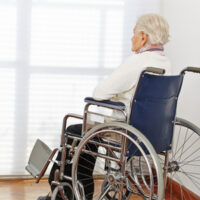Know The Signs of Nursing Home Abuse and How To Stop It

Keeping up with the demands of work, personal obligations, and the needs of your family while also attending to older loved ones can prove challenging. To ensure they get the level of care they need, placing them in a nursing home is often the best available option. While you trust nursing homes to treat your family member with respect and dignity, there are too many cases in which nursing home abuse occurs. It is important to be aware of the signs, which are often subtle, as well as the steps you can take to stop it.
How Common Is Nursing Home Abuse?
People over the age of 65 comprise one of the largest segments of the population. This is particularly true in Florida, which has a higher than average number of older adults. Unfortunately, keeping up with their needs can prove challenging. High demand for long term care and lack of staffing or oversight in facilities has led to increases in nursing home abuse.
According to the National Center on Elder Abuse, as many as one out of every 10 older adults report having suffered some type of abuse. As victims are typically reluctant to report these incidents, the actual number is likely much higher. Common types of nursing home abuse include:
- Physical abuse, such as hitting, pushing, pinching, and kicking;
- Emotional abuse, such as making threats and constantly putting down and intimidating residents;
- Sexual abuse, in which victims are subject to inappropriate touching or sexual harassment;
- Financial abuse, in which caretaker steal resident’s money or property;
- Neglect, in which older adults are deprived of their basic needs or medical attention for chronic conditions they suffer from.
Common Signs of Nursing Home Abuse and How To Protect Your Loved One
There are numerous reasons why older adults may not report incidents involving nursing home abuse or neglect. They may be ashamed, intimidated, and fear that telling will only make the situation worse. Help Guide encourages family members to be vigilant and aware of the signs. These include:
- Changes in mood or personality, such as being more fearful, anxious, or depressed;
- Unexplained bruises or other marks;
- Undiagnosed medical conditions and increasing health problems;
- Not making eye contact with certain staff members or appearing agitated when they enter the room;
- Unexplained losses of property or funds in bank accounts.
If you suspect abuse, notify the nursing home and local law enforcement immediately. Nursing home abuse is a crime and those guilty can face serious charges. To protect your loved ones, reach out to our Daytona nursing home abuse attorney. We can take the legal actions needed to ensure their safety, including filing a personal injury lawsuit against those involved.
Contact Us Today for Help
At Bundza & Rodriguez, P.A., we act as a strong legal ally on the side of victims in nursing home abuse cases, holding those at fault accountable. To request a consultation, call or contact our Daytona Beach nursing home abuse attorneys online today.
Resource:
ncea.acl.gov/What-We-Do/Research/Statistics-and-Data.aspx

